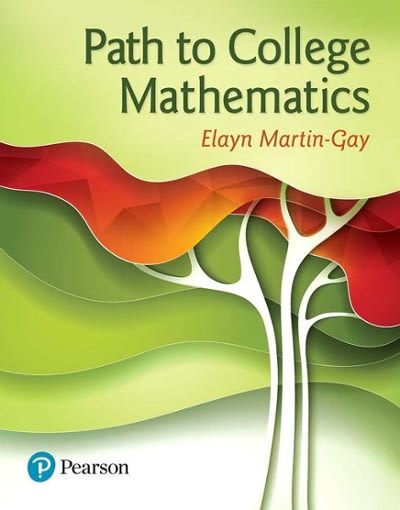Question
ANOVA & ANCOVA For each of the following scenarios, write the type of study design being implemented and the statistical method to be used. (a).
ANOVA & ANCOVA
For each of the following scenarios, write the type of study design being implemented and the statistical method to be used.
(a). Gasoline efficiency ratings were obtained on a random sample of 12 automobiles, 6 each of two different models. These ratings were taken at five different times for each of the 12 automobiles.
(b). Company officials are concerned about the length of time a particular drug retains its potency. A random sample (sample 1) of 10 bottles of the product is drawn from current production and analyzed for potency. A second sample (sample 2) is obtained, stored for
1 year, and then analyzed.
(c) . A study was designed to evaluate the effectiveness of new treatments to reduce the systolic blood pressure of patients determined to have high blood pressure. Three drugs were selected for evaluation (D1, D2, D3). There are numerous nondrug treatments for reducing blood pressure, including various combinations of a controlled diet, exercise programs, biofeedback, and so on. The researchers randomly selected three nondrug treatments (ND1, ND2, ND3) for examination in the study. The age of the patient often may hinder the effectiveness of any treatment. Thus, patients with high blood pressure were divided into two age groups (A1, A2). A group of 54 patients was divided into the two age groups and then randomly assigned to a combination of one of the three drugs and one of the three nondrug treatments. After participating in the program for 2 months, the reduction in systolic blood pressure from the blood pressure readings at the beginning of the program was recorded for each patient.
(d). An interviewer asked a random sample of 45 students at a state university to decide whether each of the following acts should be considered a crime: aggravated assault, armed robbery, arson, atheism, auto theft, burglary, civil disobedience, communism, drug addiction, embezzlement, forcible rape, gambling, homosexuality, land fraud, Nazism, payola, price fixing, prostitution, sexual abuse of children, sexual discrimination, shoplifting, strikes, strip mining, treason, and vandalism. For each student, the interviewer determined the number of acts considered a crime and other information concerning the interviewee (years of college education, age, income of parents, and gender).
(e ) .We were interested in comparing self-esteem scores for alcoholics and drug addicts. We collected a sample of nine alcoholics and a sample of nine drug addicts and for each individual, we obtained his or her self-esteem score and age.
Step by Step Solution
There are 3 Steps involved in it
Step: 1

Get Instant Access to Expert-Tailored Solutions
See step-by-step solutions with expert insights and AI powered tools for academic success
Step: 2

Step: 3

Ace Your Homework with AI
Get the answers you need in no time with our AI-driven, step-by-step assistance
Get Started


